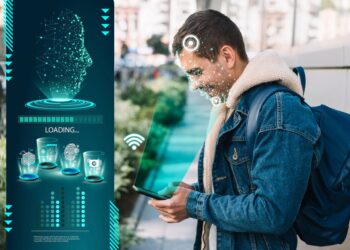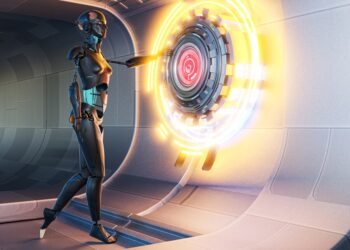How AI and Robotics are Revolutionising Healthcare in the UK
Introduction
Artificial intelligence (AI) and robotics are two of the most exciting fields in modern technology. They have already revolutionised many industries, including finance, logistics, and retail. However, nowhere are their potential benefits greater than in healthcare. In this article, we will explore the future of AI and robotics in healthcare in the UK, including the benefits they offer, the challenges they pose, and the current state of the technology.
The Benefits of AI and Robotics in Healthcare:
AI and robotics have a wide range of potential benefits for healthcare. For example, they can improve patient outcomes by providing more accurate diagnoses, more personalised treatments, and better monitoring of patients’ health. They can also help healthcare providers to work more efficiently, by automating repetitive tasks and providing real-time data analysis. Finally, they can reduce healthcare costs by streamlining processes and reducing the need for expensive human labour.
One of the most exciting applications of AI and robotics in healthcare is in the field of medical imaging. AI algorithms can be trained to analyse medical images, such as X-rays and MRIs, more accurately than humans. This can lead to faster and more accurate diagnoses of conditions such as cancer, and can also reduce the need for invasive procedures.
Another promising application of AI and robotics in healthcare is in the area of personalised medicine. By analysing large amounts of patient data, AI algorithms can identify patterns and predict which treatments are likely to be most effective for individual patients. This can lead to more targeted and effective treatments, reducing the risk of adverse reactions and improving patient outcomes.

Finally, robotics can be used to automate many tasks in healthcare, such as cleaning, logistics, and medication dispensing. This can reduce the workload on healthcare workers, allowing them to focus on more complex tasks such as patient care. Robots can also be used to perform surgical procedures, offering greater precision and reducing the risk of complications.
The Challenges of AI and Robotics in Healthcare:
Despite their potential benefits, AI and robotics also pose significant challenges for healthcare. One of the main concerns is the potential for bias in AI algorithms. If these algorithms are trained on biased data, they can perpetuate and even amplify existing biases in healthcare, leading to unequal outcomes for different groups of patients.
Another challenge is the issue of data privacy. As AI algorithms rely on large amounts of data to function, there is a risk that patient data could be compromised or misused. Healthcare providers must therefore ensure that they have robust data protection policies in place to safeguard patient privacy.
Finally, there is the issue of trust. Many people may be hesitant to rely on machines for healthcare, and may prefer to interact with human healthcare professionals. This means that healthcare providers must work to build trust with their patients and demonstrate the safety and efficacy of AI and robotics in healthcare.
The Current State of AI and Robotics in Healthcare:
Despite these challenges, AI and robotics are already being used in healthcare in the UK. For example, the NHS is currently trialling an AI-powered chatbot called Ask A&E, which can provide patients with advice on minor injuries and illnesses. This chatbot is designed to reduce the workload on healthcare workers and provide patients with a more convenient and accessible way to access healthcare advice.
Another example of AI in healthcare is the DeepMind project, which uses AI to analyse patient data and identify potential health risks. This project has already identified a number of conditions, such as acute kidney injury, before they would have been detected by human doctors. This has led to better outcomes for patients and a reduction in healthcare costs.
In the field of robotics, the da Vinci surgical system is already being used in hospitals across the UK. This system allows surgeons to perform complex procedures with greater precision and control, reducing the risk of complications and improving patient outcomes.
Another example of robotics in healthcare is the use of robotic exoskeletons for rehabilitation. These devices can help patients who have suffered a stroke or spinal cord injury to regain mobility and strength, by providing support and assistance during physical therapy sessions.
Overall, the current state of AI and robotics in healthcare in the UK is still in its early stages, with many exciting developments on the horizon. However, there is still a long way to go before AI and robotics can be fully integrated into the healthcare system.
Conclusion
AI and robotics have the potential to revolutionise healthcare in the UK, offering benefits such as more accurate diagnoses, personalised treatments, and improved patient outcomes. However, they also pose significant challenges, such as the potential for bias and data privacy concerns.
Despite these challenges, AI and robotics are already being used in healthcare in the UK, with promising results. As technology continues to develop and healthcare providers become more familiar with these new tools, it is likely that we will see even more exciting developments in the future.

Ultimately, the key to success in integrating AI and robotics into healthcare will be to ensure that they are used in a way that is ethical, transparent, and focused on improving patient outcomes. By working together to address these challenges, we can build a healthcare system that is more efficient, effective, and accessible for all.
As the use of AI and robotics in healthcare becomes more widespread, it is important to ensure that the benefits are felt by everyone. This means addressing issues of access and equity, and ensuring that the technology is used to improve outcomes for all patients, regardless of their background or circumstances.
To achieve this, healthcare providers must work to build trust with their patients, and demonstrate the safety and effectiveness of AI and robotics in healthcare. They must also be transparent about how these technologies are being used, and ensure that patients are fully informed about the potential risks and benefits.
In addition, healthcare providers must ensure that they are using AI and robotics in a way that is aligned with the principles of the NHS, including the provision of high-quality, accessible, and equitable care. This means prioritising patient needs and ensuring that the technology is being used to improve outcomes for all patients, rather than simply reducing costs or increasing efficiency.
Finally, it is important to ensure that healthcare professionals are fully trained in the use of AI and robotics, and are able to work effectively alongside these technologies. This will require ongoing education and training, as well as collaboration between healthcare providers and technology companies to ensure that the technology is being used in a way that supports the work of healthcare professionals, rather than replacing it.
















